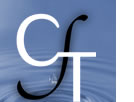 |
||||||||||
A Community of Scholars -
The Teaching Fellows Mentoring Workshop
Session 2 - Project design
Session Outline (Time: ~ 1.5 hours):
- An introduction to project design
- Cognitive science, part 2
- Project design - thinking about prior, procedural, and conceptual knowledge
- Modeling the summer's Journal Club process
1. An introduction to project design (15 minutes)
An important aspect of the Teaching Fellows Workshop is in providing a framework and some time for the mentoring groups to work together on designing projects for the research interns to work on during the summer. Project design is an important consideration for the "success" or "failure" of the summer research, both for interns and for mentors. The intern's project should be large enough to be meaningful, but not so big that there is little hope of making measurable progress. The project should be interesting and non-trivial.
After a brief discussion about the importance of project design, we split the participants into cross-lab mentoring groups.
Each group is instructed to spend 10 minutes brainstorming ideas for intern projects. Teams are encouraged to bring in experiences from previous years about projects that worked well and those that didn't.
2. Cognitive science, part 2: Prior knowledge, beliefs and habits (15 minutes)
Cognitive science research demonstrates that prior knowledge, beliefs, and habits significantly influence how people think, solve problems, and learn new information (for an introduction to this topic, see the "Pre-Existing Knowledge" section in Chapter 1 of How People Learn).
For interns to learn efficiently and deeply during the summer, we must help the interns to uncover and make visible the prior knowledge, beliefs, and habits that they bring to the lab. Once these are visible, the teaching fellows and interns can work together to build on pre-existing strengths, to clarify misunderstandings, and to develop appropriate laboratory skills.
This is perhaps the most important challenge teaching fellows will face with the new interns. The interns typically are highly successful students who are not comfortable thinking or talking about mistakes and misunderstandings. Teaching fellows will need to create a positive learning environment so that interns will be willing to reflect on their strengths and their weaknesses in both lab techniques and scientific understanding.
Teaching fellows also should be attentive to both procedural knowledge and conceptual learning. Each of these is significant in the program, but they do not always develop in tandem. Procedural knowledge most often is acquired and demonstrated at the lab bench. Conceptual learning, on the other hand, more commonly develops and is on display in the journal clubs.
Teaching fellows should help interns cultivate both procedural and conceptual learning during the summer. Interns typically find it easier to make procedural leaps because these emerge from intensive practice of lab techniques. Teaching fellows will need to be more deliberate and intentional in assisting interns to develop conceptual learning, and in making connections between procedural and conceptual aspects of the summer program.
3. Project design - thinking about prior, procedural, and conceptual knowledge
Following this conversation, mentor groups re-form to think about project design, this time with the notions of prior, procedural, and conceptual knowledge in mind. Teams work first in mentoring groups, then in cross-lab mentoring groups.
Team Assignment: Thinking about project design - procedural and conceptual learning First, in your mentor groups , spend about 15 minutes talking about the following questions:
Then, in your cross-lab mentor groups , spend about 15 minutes talking about your responses to the questions above. Do your projects share important procedures and concepts? Do you agree on which procedures and concepts are the most important? Are you making similar assumptions about the knowledge, beliefs and habits of the interns? Have you come to similar strategies about how you can deal with these things as a mentor? |
Entire group report-out and discussion
4. Modeling the summer's Journal Club process (90 minutes)
The remainder of the afternoon is spent in a journal club exercise. During the previous summer (2004), the journal club was popular with both interns and mentors, and it was very effective at promoting conceptual learning.
HOME | ABOUT CFT | PROGRAMS | SERVICES | RESOURCES
Center for Teaching |
General Questions? Web Site Questions? Copyright ©2008 |
